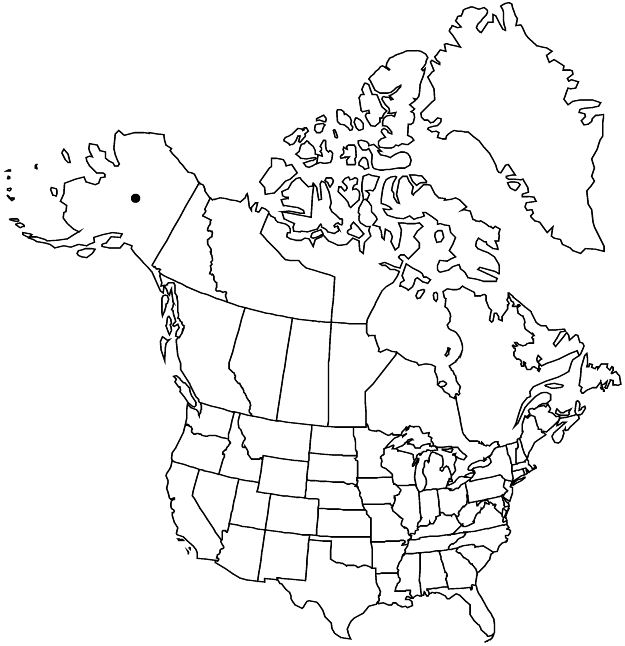familyRosaceae
subfamilyRosaceae subfam. Rosoideae
genusRosa
subgenusRosa subg. Rosa
sectionRosa sect. Rosa
speciesRosa acicularis
subspeciesRosa acicularis subsp. acicularis
Difference between revisions of "Rosa acicularis subsp. acicularis"
Treatment appears in FNA Volume 9. Treatment on page 114.
FNA>Volume Importer |
imported>Volume Importer |
||
| (6 intermediate revisions by 2 users not shown) | |||
| Line 1: | Line 1: | ||
{{Treatment/ID | {{Treatment/ID | ||
|accepted_name=Rosa acicularis subsp. acicularis | |accepted_name=Rosa acicularis subsp. acicularis | ||
| − | |accepted_authority= | + | |accepted_authority= |
|publications= | |publications= | ||
|basionyms= | |basionyms= | ||
| Line 19: | Line 19: | ||
|elevation=1500–2800 m | |elevation=1500–2800 m | ||
|distribution=Alaska;Eurasia. | |distribution=Alaska;Eurasia. | ||
| − | |discussion=<p>At least one collection from central Alaska has been confirmed as subsp. acicularis on both morphological and cytological evidence (W. H. Lewis 1958). Other reports from Alaska, and Yukon, need confirmation as to whether they are octoploid (2n = 56) subsp. acicularis plants or hybrids with hexaploid subsp. sayi individuals, forming 2n = 49 septaploids.</p> | + | |discussion=<p>At least one collection from central Alaska has been confirmed as <i></i>subsp.<i> acicularis</i> on both morphological and cytological evidence (W. H. Lewis 1958). Other reports from Alaska, and Yukon, need confirmation as to whether they are octoploid (2n = 56) <i></i>subsp.<i> acicularis</i> plants or hybrids with hexaploid <i></i>subsp.<i> sayi</i> individuals, forming 2n = 49 septaploids.</p> |
|tables= | |tables= | ||
|references= | |references= | ||
| Line 28: | Line 28: | ||
-->{{#Taxon: | -->{{#Taxon: | ||
name=Rosa acicularis subsp. acicularis | name=Rosa acicularis subsp. acicularis | ||
| − | + | |authority= | |
| − | |authority= | ||
|rank=subspecies | |rank=subspecies | ||
|parent rank=species | |parent rank=species | ||
| Line 43: | Line 42: | ||
|publication year= | |publication year= | ||
|special status= | |special status= | ||
| − | |source xml=https:// | + | |source xml=https://bitbucket.org/aafc-mbb/fna-data-curation/src/2e0870ddd59836b60bcf96646a41e87ea5a5943a/coarse_grained_fna_xml/V9/V9_170.xml |
|subfamily=Rosaceae subfam. Rosoideae | |subfamily=Rosaceae subfam. Rosoideae | ||
|tribe=Rosaceae tribe Roseae | |tribe=Rosaceae tribe Roseae | ||
Latest revision as of 22:54, 5 November 2020
Leaves: stipule auricles 4–8 mm wide; petiole and rachis rarely with pricklets; leaflets 5 (or 7), margins 1(–2+)-dentate-serrate, teeth 11–25 per 1/2 blade, eglandular, abaxial surfaces eglandular. Pedicels densely stipitate-glandular. Sepals usually to 3 mm wide at bases, abaxial surfaces usually stipitate-glandular, sometimes eglandular. 2n = 56.
Phenology: Flowering May–Jun.
Habitat: Timberlines, larch-birch and pine forests, stony glades, grassy meadows, watersheds
Elevation: 1500–2800 m
Distribution

Alaska, Eurasia.
Discussion
At least one collection from central Alaska has been confirmed as subsp. acicularis on both morphological and cytological evidence (W. H. Lewis 1958). Other reports from Alaska, and Yukon, need confirmation as to whether they are octoploid (2n = 56) subsp. acicularis plants or hybrids with hexaploid subsp. sayi individuals, forming 2n = 49 septaploids.
Selected References
None.
Lower Taxa
None.